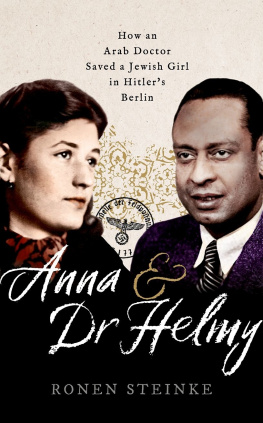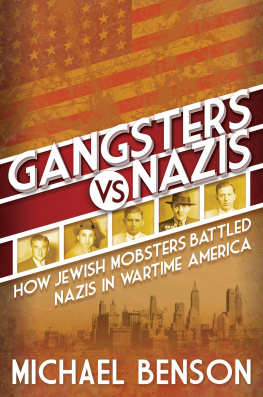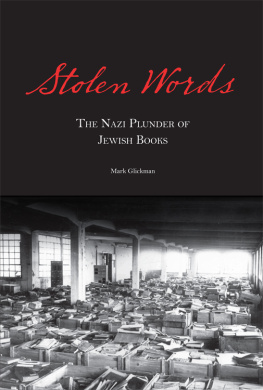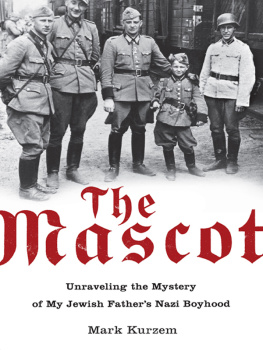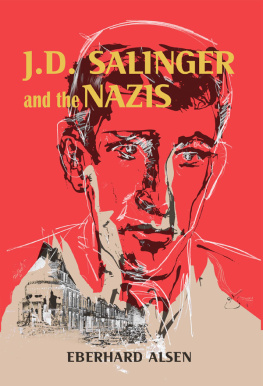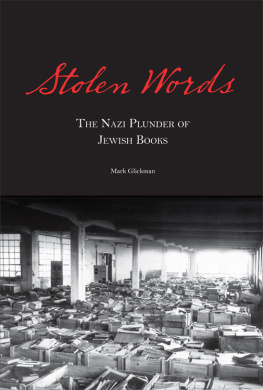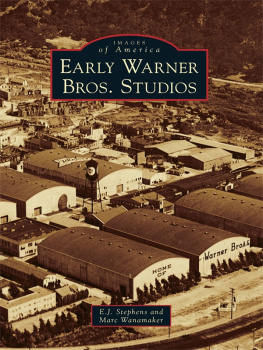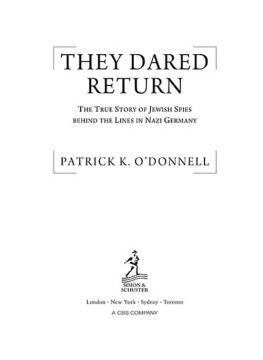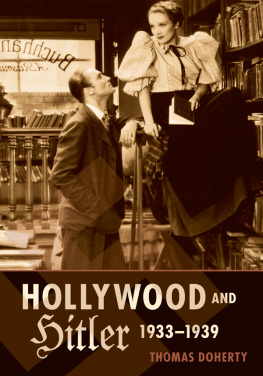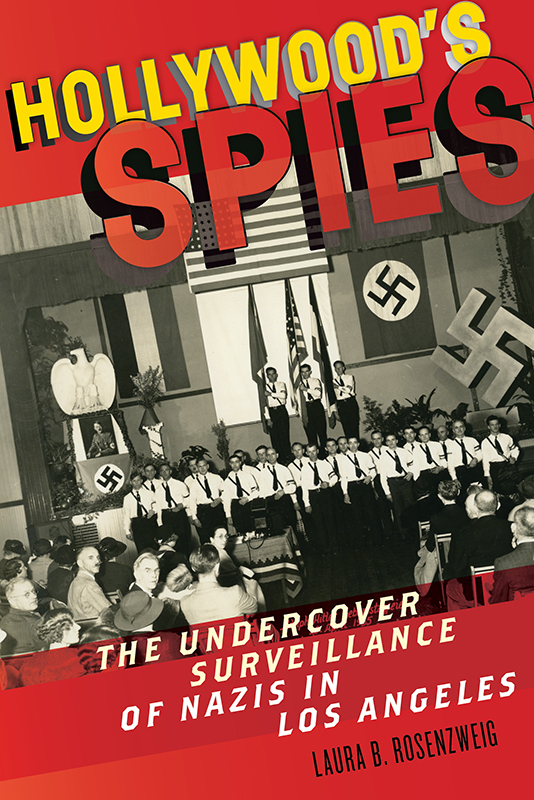
Hollywoods Spies
THE GOLDSTEIN-GOREN SERIES IN AMERICAN JEWISH HISTORY
General editor: Hasia R. Diner
We Remember with Reverence and Love: American Jews and the Myth of Silence after the Holocaust, 19451962
Hasia R. Diner
Is Diss a System? A Milt Gross Comic Reader
Edited by Ari Y. Kelman
All Together Different: Yiddish Socialists, Garment Workers, and the Labor Roots of Multiculturalism
Daniel Katz
Jews and Booze: Becoming American in the Age of Prohibition
Marni Davis
Jewish Radicals: A Documentary History
Tony Michels
1929: Mapping the Jewish World
Edited by Hasia R. Diner and Gennady Estraikh
An Unusual Relationship: Evangelical Christians and Jews
Yaakov Ariel
Unclean Lips: Obscenity, Jews, and American Culture
Josh Lambert
Hanukkah in America: A History
Dianne Ashton
The Rag Race: How Jews Sewed Their Way to Success in America and the British Empire
Adam Mendelsohn
Hollywoods Spies: The Undercover Surveillance of Nazis in Los Angeles
Laura B. Rosenzweig
Hollywoods Spies
The Undercover Surveillance of Nazis in Los Angeles
Laura B. Rosenzweig

NEW YORK UNIVERSITY PRESS
New York
NEW YORK UNIVERSITY PRESS
New York
www.nyupress.org
2017 by New York University
All rights reserved
References to Internet websites (URLs) were accurate at the time of writing. Neither the author nor New York University Press is responsible for URLs that may have expired or changed since the manuscript was prepared.
ISBN : 978-1-4798-5517-9
For Library of Congress Cataloging-in-Publication data, please contact the Library of Congress.
New York University Press books are printed on acid-free paper, and their binding materials are chosen for strength and durability. We strive to use environmentally responsible suppliers and materials to the greatest extent possible in publishing our books.
Manufactured in the United States of America
10 9 8 7 6 5 4 3 2 1
Also available as an ebook
Cary, thank you for everything.
This book is dedicated to the memory of Leon Lewis, the men and women of the LAJCC, and the men and women who worked with them to fight Nazism in Los Angeles between 1933 and 1941. Their willingness to step outside the boundaries of their personal lives to combat a political problem far greater than themselves is an inspiration. They remind all of us that democracy is not a spectator sport.
Contents
I usually skim if not skip the Acknowledgments in the front of a book. I feel like these pages are a personal letter from the author to her family, teachers, professional colleagues, and friends to thank them for their support. As a reader, I get it. It takes a village. Having worked on this book for over a decade, I now understand just how compelled an author feels to express publicly this gratitude. Writing a book can be a long and tedious task and for sure a solitary one. So, now, I as the author begin my book by asserting that I could not have written it without the unfailing support and encouragement of my husband, my son, family, and friends; the counsel of scholars; the assistance of the library professionals who worked with me on this project; and the generous support of the philanthropic organizations that made my research possible. Clich? Perhaps, but nevertheless, utterly heartfelt.
My husband has been my life partner for over thirty years. Cary, without your selfless support, I could not have written this book. For twelve years, this project was a daily preoccupation in our lives as academic theories, historiographic analyses, and the challenge of storytelling swirled in my head. Through it all, you shared in the thrill of new discoveries and buoyed my confidence during periods of self-doubt and fatigue. You were my sounding board, editor, chief critic, and cheerleader. My name occupies the space below the title, but this book is a shared accomplishment. Without your clarity, wisdom, devotion, and red pencil, I would not have been able to write this book.
I am grateful to many for their guidance over the years. The history faculty at the University of California at Santa Cruz provided me with the intellectual and moral support I needed to complete this book. I am indebted to Professor Alice Yang, mentor and friend. Professor Barbara Epstein gave so generously of her time and thought, reading and rereading unwieldy rough drafts and providing detailed and thoughtful comments. Her knowledge of Jewish social movements elevated my work to a level of scholarship that I could not have realized without her critical perspective. Professor Marc Dollingers thoughtful comments and persistent reminders not to bury the lead sharpened the focus and structure of each chapter. I am indebted to him and to Professor Fred Astren at San Francisco State for their support over the years. Two other academic colleagues helped to launch and conclude this work. This project started with a phone conversation with Professor Steven Carr of Indiana UniversityPurdue University. It was Steven who told me about the CRC Papers. Professor Ellen Eisenberg of Willamette University stepped up at the end of a long road to read the final draft of the manuscript and shined the light that guided it to completion.
I wish to thank my scholarly friends whose willingness to read, edit, and critique drafts was invaluable. Jackie Gutwirth took a sharp red pencil to my first working draft of this book. Rebecca Landes read the last draft and provided critical feedback, and Sandy Horwich edited the final manuscript with a thoughtful eye.
This book was supported by many funders over the years. A three-year research grant from the Memorial Foundation for Jewish Culture made travel to and from Los Angeles possible. Research grants from the American Jewish Archives in Cincinnati, the Center for American Jewish History in New York City, the Historical Society of Southern California, and the USC/Annenberg Foundation funded research trips, and a fellowship grant from the Institute for Humanities Research at UCSC sustained this project.
The research for this project took me to archives across the country. I am thankful to the professional librarians and archivists who assisted me during the years. I am particularly indebted to David Sigler, the reading room supervisor at the Urban Archives and Special Collections of Oviatt Library, for his attentiveness and outstanding personal service over the years, and to Yolanda Greenhalgh, for her good company in the reading room and for introducing me to Leonard Pitt. Thanks, too, to Kevin Profitt at the American Jewish Archives for his help during the month I spent in Cincinnati, to Charlotte Bonelli for unlocking the secret of the American Jewish Committees 1930s fact-finding operation, and to William Davis at the United States National Archives in Washington, DC, who cut through the complexities of the Dies Committee collection to locate the Los Angelesrelated documents.
One of the most rewarding aspects of conducting recent historical research is the possibility that one might be able to meet the protagonists of his or her research. The historical actors of this story have passed, but it was my pleasure to know Claire Lewis Read and Sherry Slocombe and an honor to share with them stories of their fathers anti-Nazi activism, of which they knew nothing. Remarkably, both women had letters and papers belonging to their fathers, which they both graciously shared along with memories of their fathers. I wish that Claire could have lived to see this book published, but I am confident that somewhere, she and her father, Leon Lewis, are smiling down on this tribute to his work. Thanks, too, to my friend Pam Thompson, whose genealogical expertise located Claire and Sherry.
Next page

